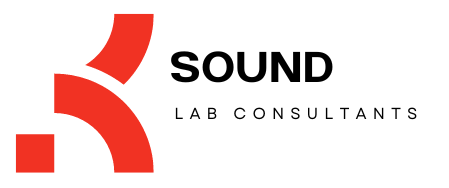Lab Consultants
We are lab consultants who provide lab technical services to physician offices freestanding ERs urgent care and many more types of labs across the United States.
Julie Reynolds
8/29/20233 min read


Title: Enhancing Medical Practices: The Role of CLIA Lab Consultants in the United States
In the ever-evolving landscape of healthcare, medical laboratories play a pivotal role in diagnosing and treating patients. Ensuring the accuracy, reliability, and efficiency of these laboratories is of paramount importance. This is where Clinical Laboratory Improvement Amendments (CLIA) consultants step in, providing specialized technical services to help medical practices navigate the complex world of regulatory compliance and laboratory quality assurance. In this blog, we will delve into the significance of CLIA lab consultants in the United States and how they contribute to the overall quality of patient care.
Understanding CLIA and its Significance
Before delving into the role of CLIA lab consultants, it's essential to grasp the significance of CLIA itself. The Clinical Laboratory Improvement Amendments, enacted in 1988, established quality standards for all laboratory testing to ensure the accuracy, reliability, and timeliness of patient test results. The Centers for Medicare & Medicaid Services (CMS) oversees the implementation of CLIA regulations to ensure that clinical laboratories meet the necessary quality standards.
CLIA regulations are categorized into different levels based on the complexity of testing performed, ranging from waived tests (simple tests like urine dipsticks) to high-complexity tests (such as molecular diagnostic tests). To operate a laboratory that performs non-waived tests, the laboratory must obtain the appropriate CLIA certification.
The Role of CLIA Lab Consultants
CLIA regulations can be intricate and challenging to navigate, especially for smaller medical practices or new laboratories. This is where CLIA lab consultants come into play. These consultants are experts in the field of clinical laboratory operations and compliance. Their primary goal is to assist medical practices in establishing and maintaining laboratories that meet CLIA standards, ensuring patient safety and the accuracy of test results.
Services Offered by CLIA Lab Consultants
Regulatory Compliance: One of the core services provided by CLIA lab consultants is helping medical practices understand and adhere to CLIA regulations. These consultants have an in-depth understanding of the different CLIA levels, requirements, and documentation needed to maintain compliance. They work closely with laboratories to ensure that processes, equipment, and personnel meet the necessary standards.
Quality Assurance and Improvement: Quality assurance is vital in laboratory operations. CLIA lab consultants assist in implementing quality control processes, proficiency testing, and internal audits to identify and rectify issues promptly. By continuously monitoring laboratory practices, consultants help maintain accurate and reliable test results.
Personnel Training: Well-trained personnel are the backbone of any lab. CLIA consultants provide training to laboratory staff on various aspects, including proper testing techniques, safety protocols, and regulatory requirements. This ensures that everyone involved in the testing process is well-informed and capable.
Documentation and Record-Keeping: Proper documentation is essential for demonstrating compliance during inspections. CLIA lab consultants assist in creating and organizing documentation related to standard operating procedures, quality control records, proficiency testing results, and more. This meticulous record-keeping simplifies the inspection process and showcases the laboratory's commitment to quality.
Instrumentation and Technology: Staying up-to-date with the latest laboratory technology and equipment is crucial for accurate testing. CLIA consultants offer guidance on selecting appropriate instrumentation, implementing new technologies, and validating their performance to meet CLIA standards.
Inspection Readiness: Laboratories are subject to periodic inspections to ensure compliance with CLIA regulations. CLIA lab consultants play a pivotal role in preparing laboratories for inspections, guiding them through the process, and addressing any potential issues before they become critical.
Impact on Patient Care
The work of CLIA lab consultants directly influences patient care in several ways:
Accuracy of Diagnosis: Accurate and reliable test results are the foundation of proper medical diagnoses. CLIA consultants' efforts help ensure that laboratories produce dependable results, reducing the risk of misdiagnoses and unnecessary treatments.
Patient Safety: CLIA regulations are designed with patient safety in mind. Consultants help laboratories adhere to these regulations, reducing the chance of errors that could jeopardize patient health.
Efficient Operations: Efficient laboratories lead to quicker turnaround times for test results. CLIA consultants assist in streamlining laboratory processes, allowing medical practitioners to make timely decisions regarding patient care.
Regulatory Confidence: Laboratories that work with CLIA consultants demonstrate a commitment to regulatory compliance and quality. This builds confidence among patients, healthcare providers, and regulatory bodies.
In conclusion, CLIA lab consultants play a pivotal role in enhancing the quality and reliability of medical laboratory operations in the United States. Their expertise in regulatory compliance, quality assurance, personnel training, and technology implementation empowers medical practices to provide accurate and timely test results, ultimately leading to improved patient care. As the healthcare industry continues to evolve, the guidance of CLIA lab consultants remains invaluable in navigating the complex landscape of laboratory operations and regulations.
